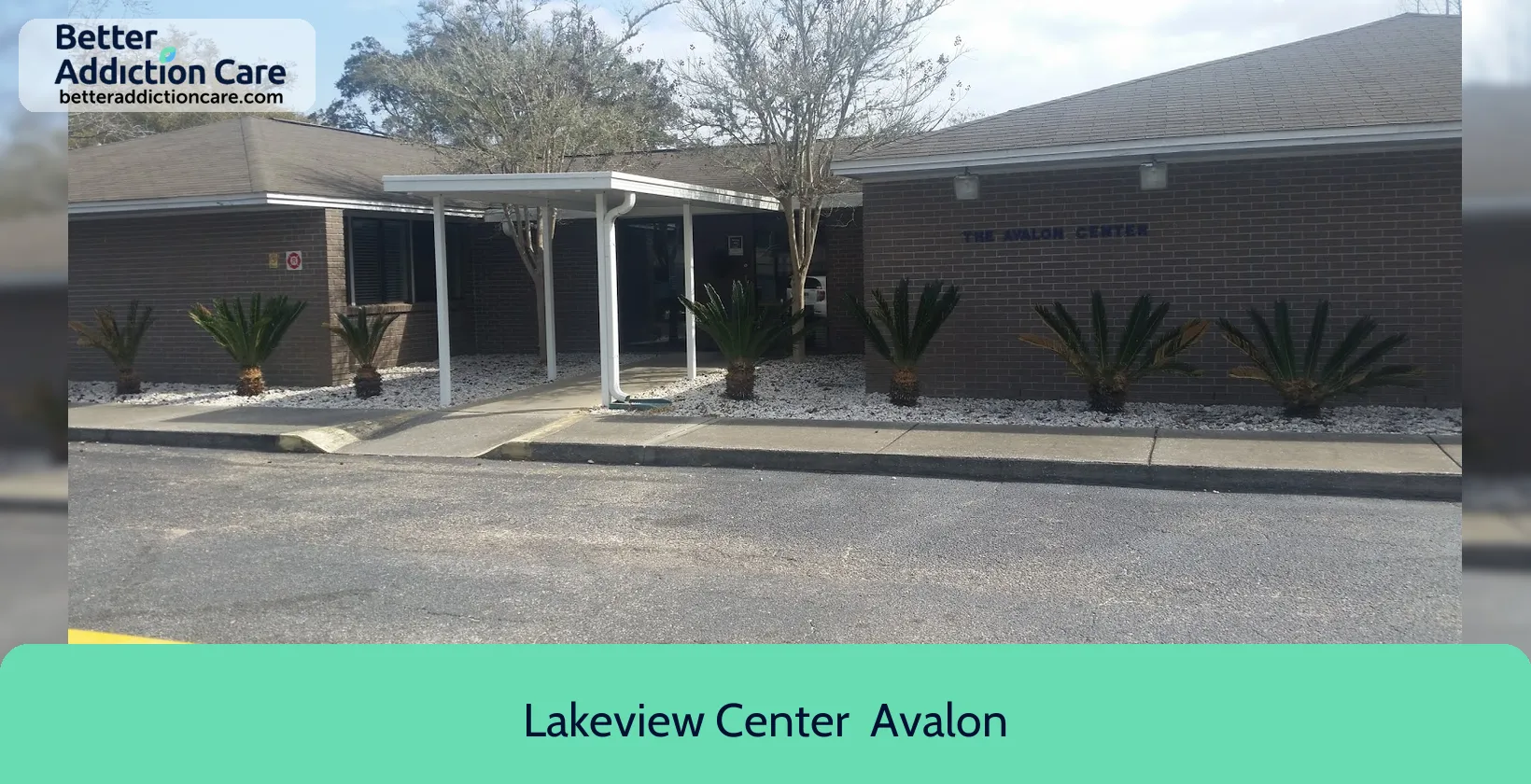Overview
Lakeview Center, situated in Pensacola, Florida, is a comprehensive facility that provides a diverse array of mental health services and addiction treatment. Lakeview Center offers specialized programs to serve individuals of all ages who are coping with substance use disorders, mental health challenges, and co-occurring conditions. The center is capable of offering individualized care that is tailored to the severity and complexity of each client's circumstance, as it offers both inpatient and outpatient services. The center's ambulatory appointments facilitate adaptable treatment, enabling clients to maintain their daily routines while receiving the necessary support.
Lakeview Center's residential programs provide a structured and supportive environment for individuals who require more intensive care. This encompasses the JoAnn Birge Women and Children's Center, a distinctive initiative that enables mothers to receive treatment while remaining with their small children. The residential program is dedicated to equipping clients with the necessary resources for long-term recovery by utilizing evidence-based therapies, such as individual counseling, group therapy, and life skills training. It is imperative that clients address not only their addiction but also the underlying emotional and psychological issues that may be contributing to their substance use through this comprehensive approach.
Lakeview Center also provides specialized services for children, acknowledging the significance of early intervention in the treatment of mental health and substance addiction issues. The children's services are designed to assist children and adolescents in overcoming obstacles before they escalate. They concentrate on family therapy, emotional regulation, and behavioral health. These programs are intended to cultivate resilience and healthy coping mechanisms in young individuals, thereby establishing a foundation for long-term well-being.
Lakeview Center is committed to the most stringent ethical standards and quality of care, as evidenced by its accreditation by the Commission on Accreditation of Rehabilitation Facilities (CARF). The center's crisis and emergency care services are also a critical aspect of its offerings, as they offer immediate assistance to individuals who require mental health intervention in a hurry. Lakeview Center is dedicated to providing compassionate and effective care, guiding individuals toward a healthier, more fulfilling life, with the assistance of a multidisciplinary team of experts.
Lakeview Center - Avalon at a Glance
Payment Options
- Cash or self-payment
- Medicaid
- Medicare
- State-financed health insurance plan other than Medicaid
- Private health insurance
Assessments
- Screening for tobacco use
- Comprehensive mental health assessment
- Comprehensive substance use assessment
- Screening for mental disorders
- Screening for substance use
Age Groups
- Adolescents
- Children/adolescents
- Young adults
- Adults
- Seniors
Ancillary Services
- Case management service
- Court-ordered outpatient treatment
- Education services
- Suicide prevention services
- Mental health services
Highlights About Lakeview Center - Avalon
6.89/10
With an overall rating of 6.89/10, this facility has following balanced range of services. Alcohol Rehabilitation: 8.00/10, Drug Rehab and Detox: 6.00/10, Insurance and Payments: 6.00/10, Treatment Options: 7.58/10.-
Alcohol Rehabilitation 8.00
-
Treatment Options 7.58
-
Drug Rehab and Detox 6.00
-
Insurance and Payments 6.00
Accreditations
State mental health department:
State mental health department accreditation refers to the process of evaluating and certifying the quality and standards of a state's mental health department, ensuring that it provides high-quality services and meets specific criteria for mental health care. The accreditation process is performed by a third-party organization and helps to improve the overall care and treatment of individuals with mental health conditions.
Commission on Accreditation of Rehabilitation Facilities (CARF):

CARF accreditation is a prestigious recognition granted to rehabilitation and human service organizations. It signifies that an organization meets high-quality standards, having undergone a rigorous evaluation process. CARF accreditation boosts an organization's credibility and ensures top-notch care for individuals with disabilities, injuries, or healthcare needs.
Federally Qualified Health Center:
Federally Qualified Health Center (FQHC) accreditation is a process of evaluation and recognition by the federal government for community health centers that provide comprehensive and accessible healthcare services to underserved populations. FQHC accreditation is essential for centers to receive federal funding and to ensure that they meet standards for quality, patient-centered care.
Treatment At Lakeview Center - Avalon
Treatment Conditions
- Alcoholism
- Mental health treatment
- Substance use treatment
- Co-occurring Disorders
Care Levels
- Outpatient
- Regular outpatient treatment
Treatment Modalities
- Individual psychotherapy
- Couples/family therapy
- Cognitive behavioral therapy
- Dialectical behavior therapy
- Integrated Mental and Substance Use Disorder treatment
Ancillary Services
Languages
- Sign language services for the deaf and hard of hearing
Additional Services
- Pharmacotherapies administered during treatment
- Discharge Planning
- Breathalyzer or blood alcohol testing
Special Programs
- Clients who have experienced trauma
Common Questions About Lakeview Center - Avalon
Contact Information
Read our Most Recent Article About Drug Addiction
DISCLAIMER: The facility name, logo and brand are the property and registered trademarks of Lakeview Center - Avalon, and are being used for identification and informational purposes only. Use of these names, logos and brands shall not imply endorsement. BetterAddictionCare.com is not affiliated with or sponsored by Lakeview Center - Avalon.









